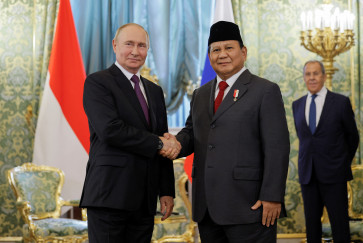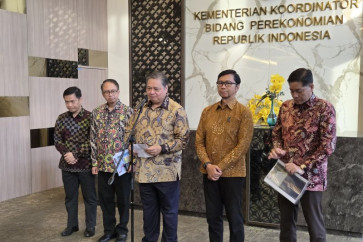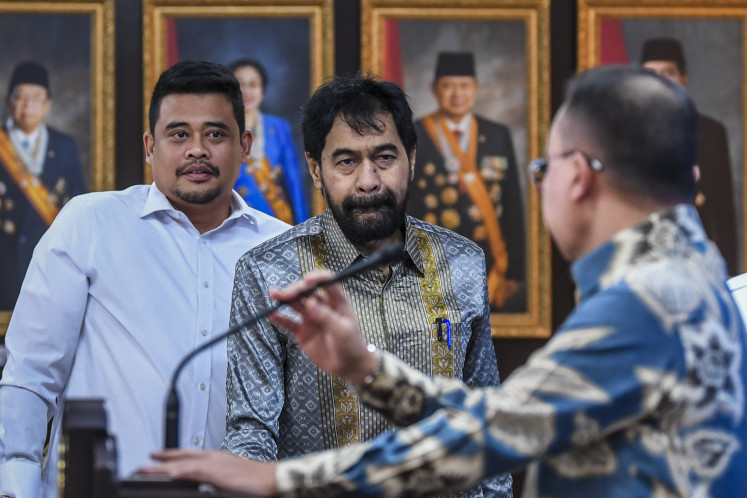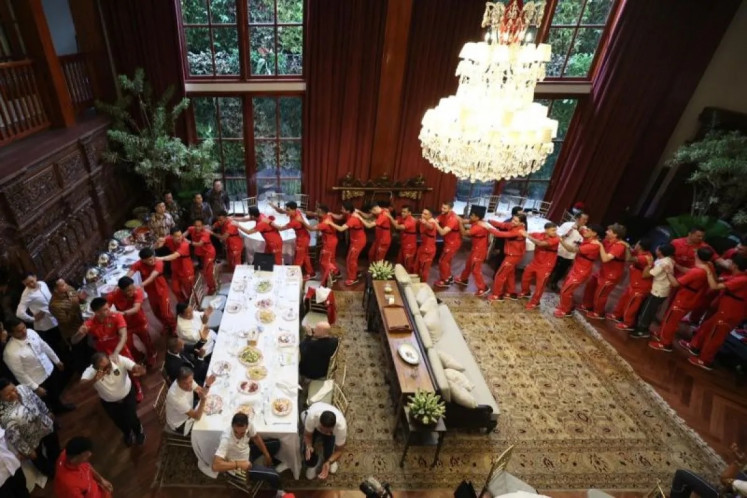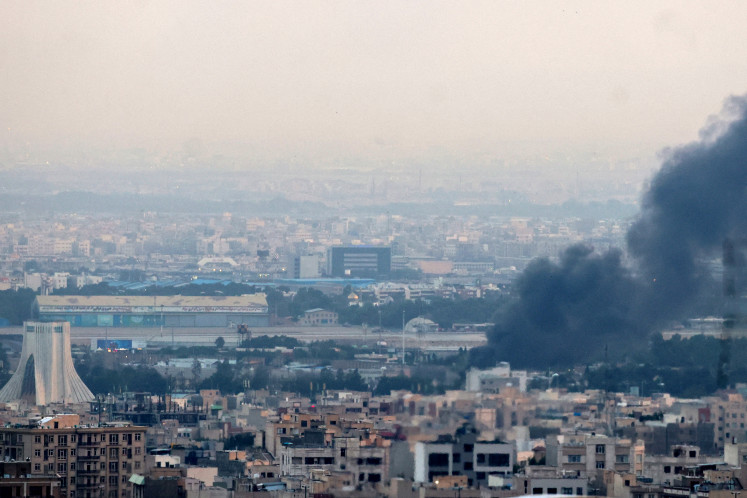Popular Reads
Top Results
Can't find what you're looking for?
View all search resultsPopular Reads
Top Results
Can't find what you're looking for?
View all search resultsPeople, not numbers: The man who lived through miracles
The unforgettable kindness of a youth minister
Change text size
Gift Premium Articles
to Anyone
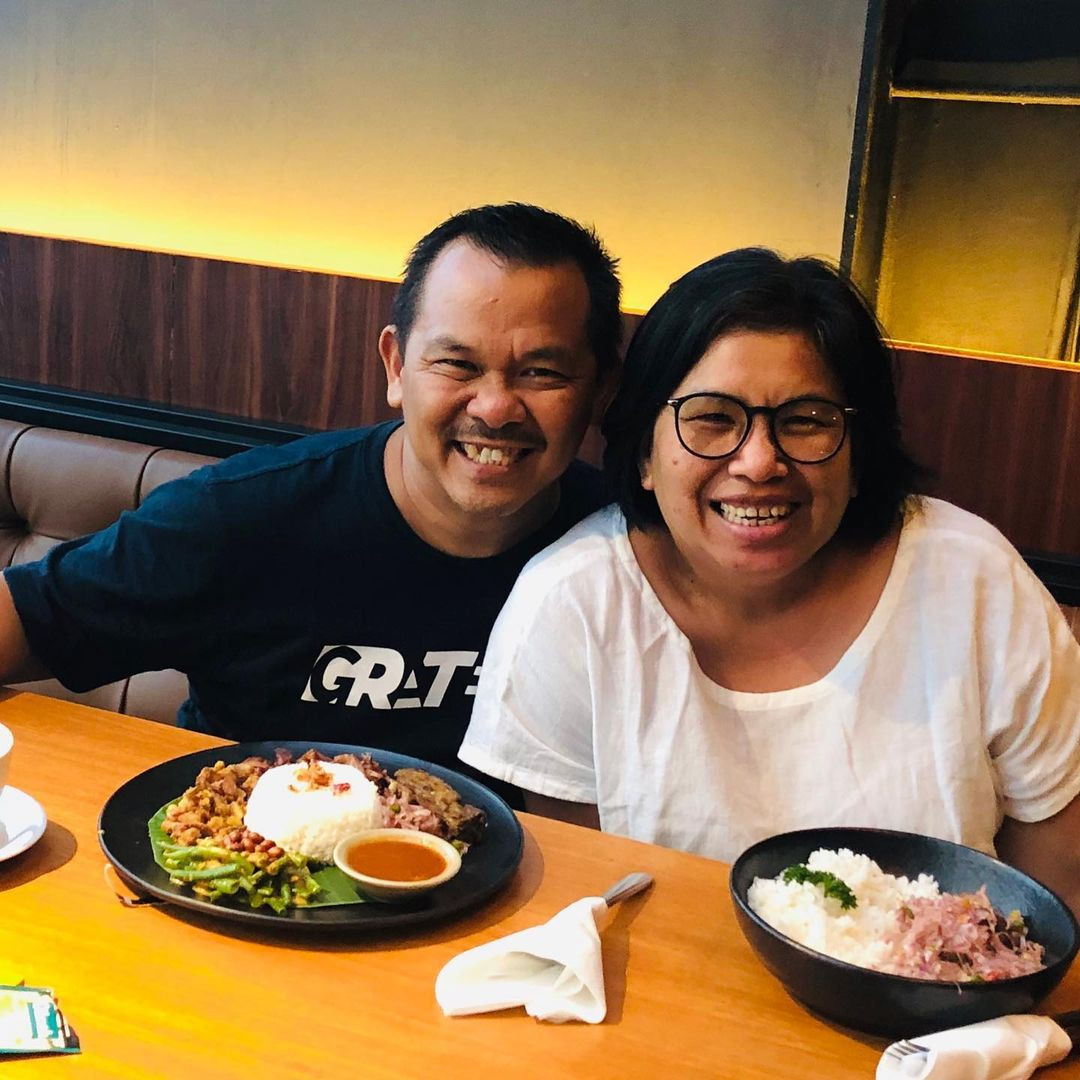
T
he sheer number of COVID-19 deaths has made it easy to forget that behind the statistics lie the stories of individuals who could have lived on to do so much more for the community. In “People, not numbers”, The Jakarta Post remembers some of these people’s lives through the eyes of those who knew them best.
Nobody in his position was supposed to make it. He was supposed to disappear into the void, like so many have before him. But something happened to his life, something perhaps beyond mortal understanding.
Samuel Saputra believed in the possibility of redemption and the audacity of hope, simply because his own life was a triumph of faith over circumstance. An educator, youth minister, loving husband and spiritual father to many, his death due to COVID-19 complications on July 2 has left a gaping hole in the lives of those he left behind.
“I felt as though God had fulfilled all the promises he made years ago,” his wife, Ina Boediono, said recently. “Samuel had ministered from Sabang to Merauke. He had travelled the world and spoken to crowds of thousands. He enjoyed his life. But, I suppose, God moves at his own pace.”
From humble beginnings
When Samuel first declared his love for Ina almost three decades ago, he gave her a short, curt warning. “He told me, ‘This is my life. This is where I came from,’” Ina recalled. “‘It’s very different from yours. Will you still take me?’”
Ina was a pious woman from an educated, middle class family. Samuel was on the right track. When they met in 1991, he was an up-and-coming minister, soon to depart for the United States to study theology. The path to his vocation, though, was a rather scenic one.
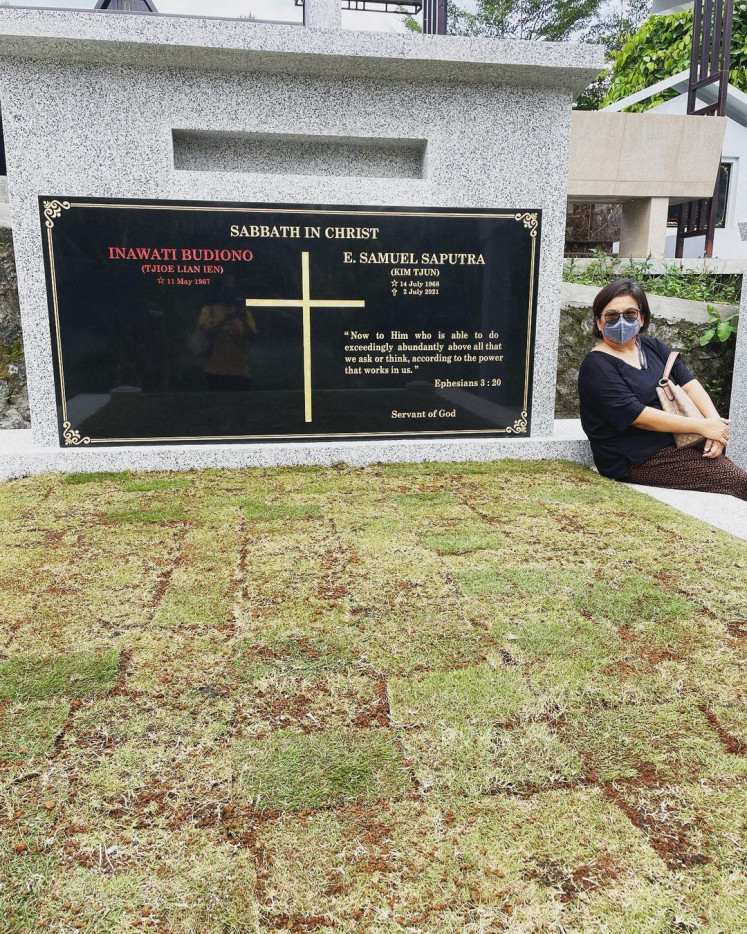
Samuel never knew his father. His parents divorced when he was just 40 days old, and his father took custody of his older sister and twin. Desperate for cash, Samuel’s mother found a job as a maid in Sumatra and barely saw her child afterwards. The baby was left in the care of Samuel’s grandmother, who sold food out of street carts in Rengasdengklok, a rural village in Banten.
“He grew up without electricity,” Ina said. “When he was six years old, he was forced to work, selling sweets to tired farmers to supplement his family’s income.”
He graduated primary school, but that was as far as it went. His family was simply too poor to pay for his middle school tuition. By the age of twelve, he had left home and worked intermittently in a car repair shop. A family took him in and eventually brought him to Jakarta.
There, Samuel attended his first church service. “He was fourteen then,” Ina recalled. “When he stepped into the church, he told me he heard God introduce himself.”
This was a turning point in Samuel’s life. Suddenly, he found an answer in his lifelong search for somewhere to belong, something that accepted and loved him without question. He asked for a Bible and the opportunity to serve in the church. The priest agreed.
For two years, Samuel volunteered there, sweeping the halls and cleaning the bathrooms. In exchange, he slept on a mat behind the pulpit. “He had to wake up before morning prayers and could only sleep after the night prayers,” Ina said.
By then, it was time for another leap of faith. A regular churchgoer suggested that he apply for a prestigious seminary in Ungaran, Central Java, but his pastor rebuffed the idea. “They only took high school graduates, and he was this poor kid who had barely passed primary school,” Ina said. “But Sam sent the application anyway.”
Even before he received a reply, Samuel gathered all his savings (only Rp 20,000) and took the first bus to Ungaran. When he arrived at the school, he was told that they had just sent out a letter rejecting his application. “Because Sam was already there, the school said they would consider it,” Ina recalled. “But they wanted to wait for some of the church elders who were still tending to business in the United States.”
And so Samuel waited. He cleaned rabbit cages, swept floors, slept rough in the school’s grounds and eavesdropped on classes. When the elders told him he could study but could not get a degree, he accepted and quickly became the brightest kid in the class.
“His classmates told me they dreamt of him often,” Ina said. “They saw Sam speaking to a crowd of thousands, not just Indonesians, but people all over the world.”
This was some prophecy, but it soon proved true. An American pastor who was visiting the school was impressed by Samuel’s faith and desire to learn. She took him under her wing, acting as a surrogate mother, nurturing his spirituality and entrusting him as her translator.
The wheels were set in motion for a life of service to God, a path that eventually led him to Ina. They met in 1991, and she admits that the young pastor “didn’t make a great first impression”. But even now, almost three decades later, she still giggles like a school girl when she remembers their courtship.
“We were both dating other people when we first met,” Ina said, laughing. “But then time passed, things changed, and then he left for America. We kept in touch. Then things got a lot more serious.”
Before returning to Indonesia in 1992, he asked her if he could pursue their relationship further. Ina agreed. “I can work hard to earn money,” she said. “But it’s hard to find someone who’s honest, responsible and loves his God. I believe if a man loves his God, he will love his family because that’s what the Lord says.”
They were married on April 3, 1993, and had two children together. “Can you believe it? From the time we first met to the day we got married, we only saw each other face to face four times?” Ina said. “The fifth time I met him was on the altar.”
Paying it forward
The couple knew their lives together extended beyond the church walls. “He kept telling me he knew what it meant to be poor, to be insecure, to feel unappreciated,” Ina said. “He knew what it was like to live without an education. So he had this desire to help people out.”
In 1996, the couple founded Pondok Penuai, a boarding house and school based in Salatiga, Central Java. They housed, fed and educated children from impoverished families whom Samuel met during his travels around Indonesia. Some were rescued from a life of crime, some from abusive households and almost all of them from abject poverty. It was a place of refuge as much as it was a haven of learning.
“Sam said, ‘If it wasn’t for my spiritual mother, I wouldn’t be here right now.’” Ina said. “Someone trusted and paid attention to him. That changed his life. He wanted others to have the same opportunity.”
Joni Lalay was one of these wayward souls. Born in Kupang, East Nusa Tenggara (NTT), he came from a “broken family” and was soon led into a life of crime. “By the time I was a teenager, I spent most of my time on the streets,” Lalay said. “I drank, robbed and had joined a gang. My life was going nowhere.”
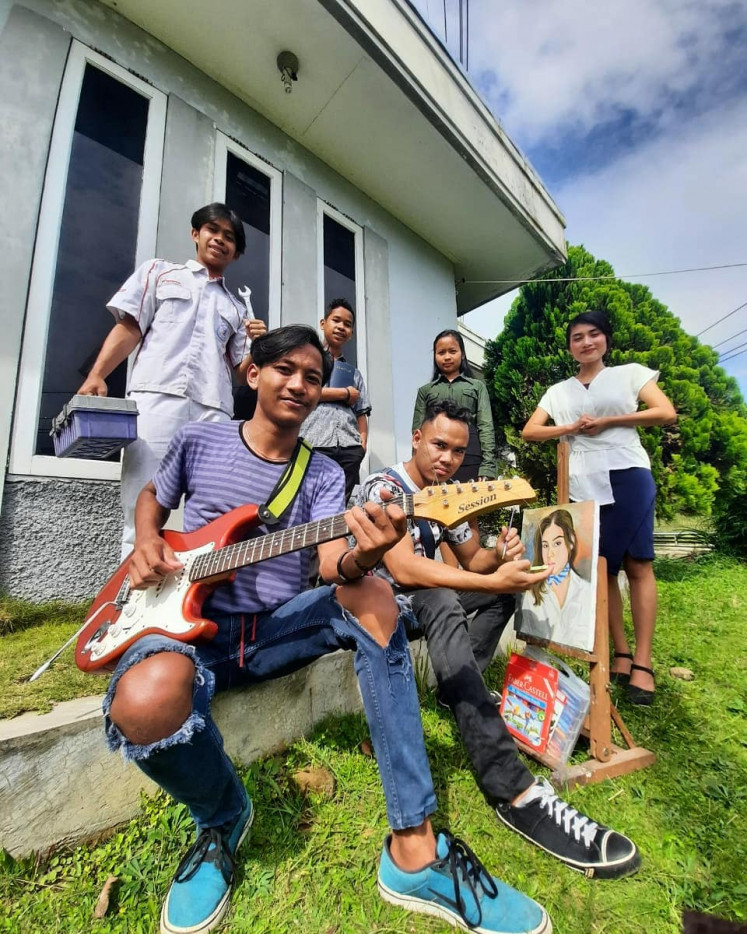
Inspired by his siblings’ repentance, Lalay gradually turned his life around and was soon going between jobs and churches. An acquaintance took him to Jakarta, where a chance encounter with a friend brought him to Salatiga. Then twenty years old and still scarred by a life of trauma, his meeting with Samuel convinced him his life was worth trying for.
“He wasn’t just friendly, he was enthusiastic about people,” Lalay recalled. “I knew nothing. I had just repented. I was still messed up. But he never asked us to be perfect. He respected us for who we were.”
Lalay was a poor student at first. “I regressed a lot into my past life,” Lalay said. “I rebelled against the rules. I snuck out of the boarding house. At one point, I was considered a lost cause. I wanted to quit and return to Kupang, but I wasn’t convinced. What was I supposed to do there?”
“I asked God in my prayers, ‘If you really want me to be better, why am I still like this?’” he recalled. “At that moment something convinced me to stay and keep trying. Gradually things changed.”
By then, Ina was pursuing her passion for education and Samuel was regularly ministering to parishes in Indonesia’s hinterlands. He would take students from Pondok Penuai along with him on these trips, establishing mentorships and allowing them to shoulder more responsibilities.
“Before he gave his sermons, he would ask us to come up first and express our thoughts and what we had learned about God,” Lalay said. “I was a terrible public speaker, but I understood that this was a training process. He was sharing the stage with us. He wanted us to feel appreciated and heard.”
“I encountered God more on these journeys than I ever had in Bible school,” Lalay noted. “We served, saw what Samuel was like in real life, and understood his convictions. He would sit down with people, listen to their life stories without any judgment and empower them. He loved praying for people.”
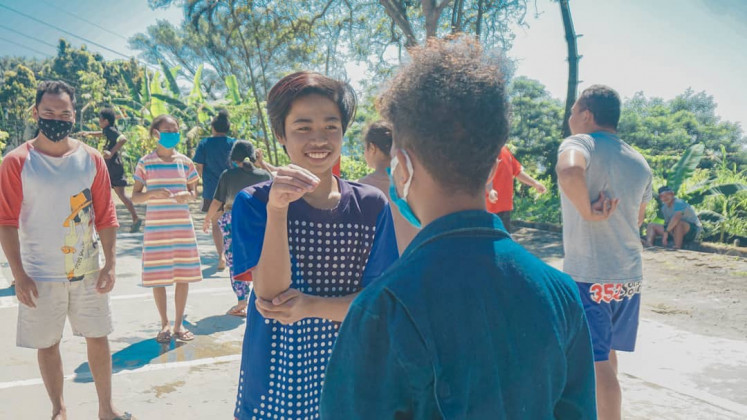
“It was unusual to see a minister of his stature taking so much time to talk to one or two people,” Lalay continued. “But that was him. It wasn’t about the crowds. He just genuinely cared for people.”
Ina understood that this was simply part of her husband’s principles. “It made more sense to help someone pay for their tuition or kick-start their business than buy houses, cars and expensive clothes,” she said. “That’s why we had a lot of ‘children’, so to speak. Early on in the marriage, we had a big family.”
“For him, it’s better to invest in what God created rather than in what man created,” Ina said. “God’s creations increase in value. What we create only depreciates in value.”
A fateful end
“There was a message that dominated his sermons this past year,” Ina said. “He kept saying, ‘Love God passionately, love others unconditionally.’ Looking back, I think that was his final message.”
The couple kept themselves busy throughout the pandemic. Samuel was on call most of the time, delivering online sermons and praying for ailing members of his congregation. Pondok Penuai still housed 38 students from all over Indonesia. Late last year, the couple considered renting out several rooms, as several students had expressed an interest in pursuing a career in hospitality. Things were moving, then they came crashing down.
Sometime in late June 2021, Samuel returned from a trip to Yogyakarta feeling under the weather. A routine health check with their family doctor confirmed their suspicions: he had COVID-19. “He had a good appetite, could smell perfectly fine and his oxygen saturation was consistently above 95,” Ina said. “He was isolated on the second floor of our home, but everything felt fine.”
Life seemed to proceed as normal. Samuel recorded sermons, called friends and prayed for members of his congregations who were dying of the very same disease he was suffering from. After three days of isolation, he was noticeably healthier and sleeping well. Speaking to Ina, he excitedly planned a birthday trip to Bandung with their children.
“I woke up early on July 1,” Ina recalled. “I had a bad feeling, out of nowhere. When I walked upstairs, Sam was weak. His oxygen saturation had dropped to 90 for the first time. His doctor told us we needed to go to the hospital.”
They packed light, expecting a routine check before being sent back home. Samuel took his time, washing himself and helping himself to a hearty breakfast. He walked unassisted downstairs and into the car. Preliminary checks on the emergency room revealed no particular causes for concern. By the later afternoon, Samuel was resting on a bed, waiting to be transferred to his own room.
“He suddenly told me he wanted to sleep on his side,” Ina said. “I moved him, arranged the pillows, and rubbed his back. Then I saw him looking up at the ceiling, and then he was gone. That was it. He just stopped breathing.” He was only 52 years old.
From then on, things happened as if in a blur. “When he was at the emergency room, he had this look on his face,” Ina said. “It was the way he looked when he was praying. He didn’t complain. Maybe he knew his time had come. Maybe he didn’t want me to see him go, that’s why he asked to sleep on his side. I knew he saw something when he looked up. He never stopped praying.”
Planting seeds
A neighbor approached Ina Boediono not long after Samuel’s death was announced. There had been a miracle, they said. A cloud in the shape of a cross had appeared above their family home. It was God, they told her, coming to take Samuel home, the same way a doting father picks up his son after a long day at school.
This thought gave Ina some solace in her grief. “I’m struggling not to protest, not to be angry at God,” she said. “I couldn’t think that day. My children are in shock, too. I can’t force them to be happy. I can’t pretend I’m strong. The only thing I can tell them is that we’re going through this together.”
Even now, Joni Lalay still tears up at the thought of his spiritual mentor. “I know God is in control, but I’m in shock. Why did it have to happen?” he said. “But looking back at his life, he has turned around the lives of so many people.”
Lalay reminded Samuel of this once, in his moment of doubt. “He has to know that everything he did meant something,” Lalay said. “I knew nothing, I could do nothing before I met him. I know I am who I am today because of him.”
Pondok Penuai’s alumni are scattered throughout Indonesia. Hundreds of them, so many that even Ina herself has lost count. Many are preachers, but a lot more have turned to education and social activism, perhaps inspired by Samuel’s own fervor to improve the lives of the downtrodden. Similar boarding houses have popped up in Rote, Kalimantan and Aceh.
Joni Lalay is among them. These days he lives in Sentani, Papua, where he operates a school and church youth program with his wife, helping impoverished children prepare for a better future. Samuel was an occasional visitor to his school, he said, and a respected friend. “He taught me that each individual had value,” Lalay said. “I carry that all my life.”
“All our life, we were planting seeds,” Ina concluded. “They will grow into trees and turn into more seeds. One day, we hope, we will see a forest and rest in the shade.”


